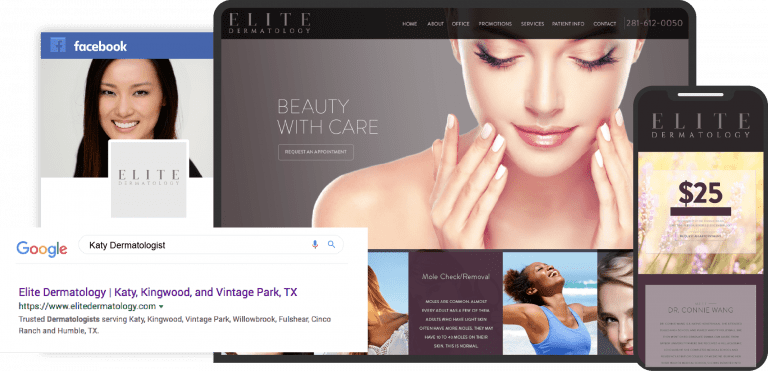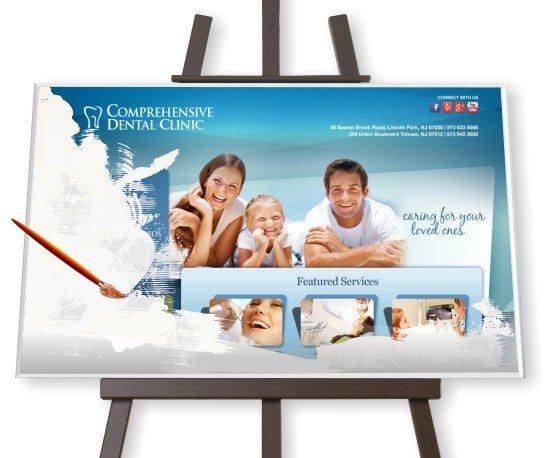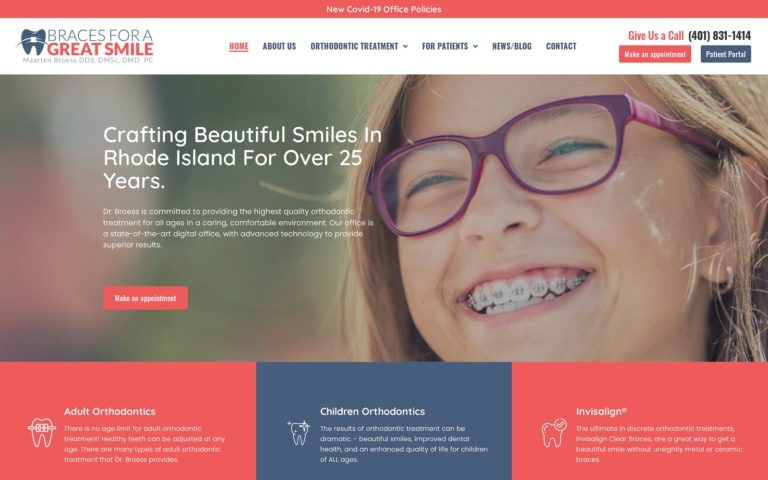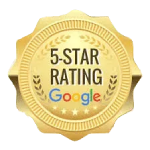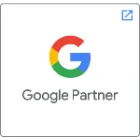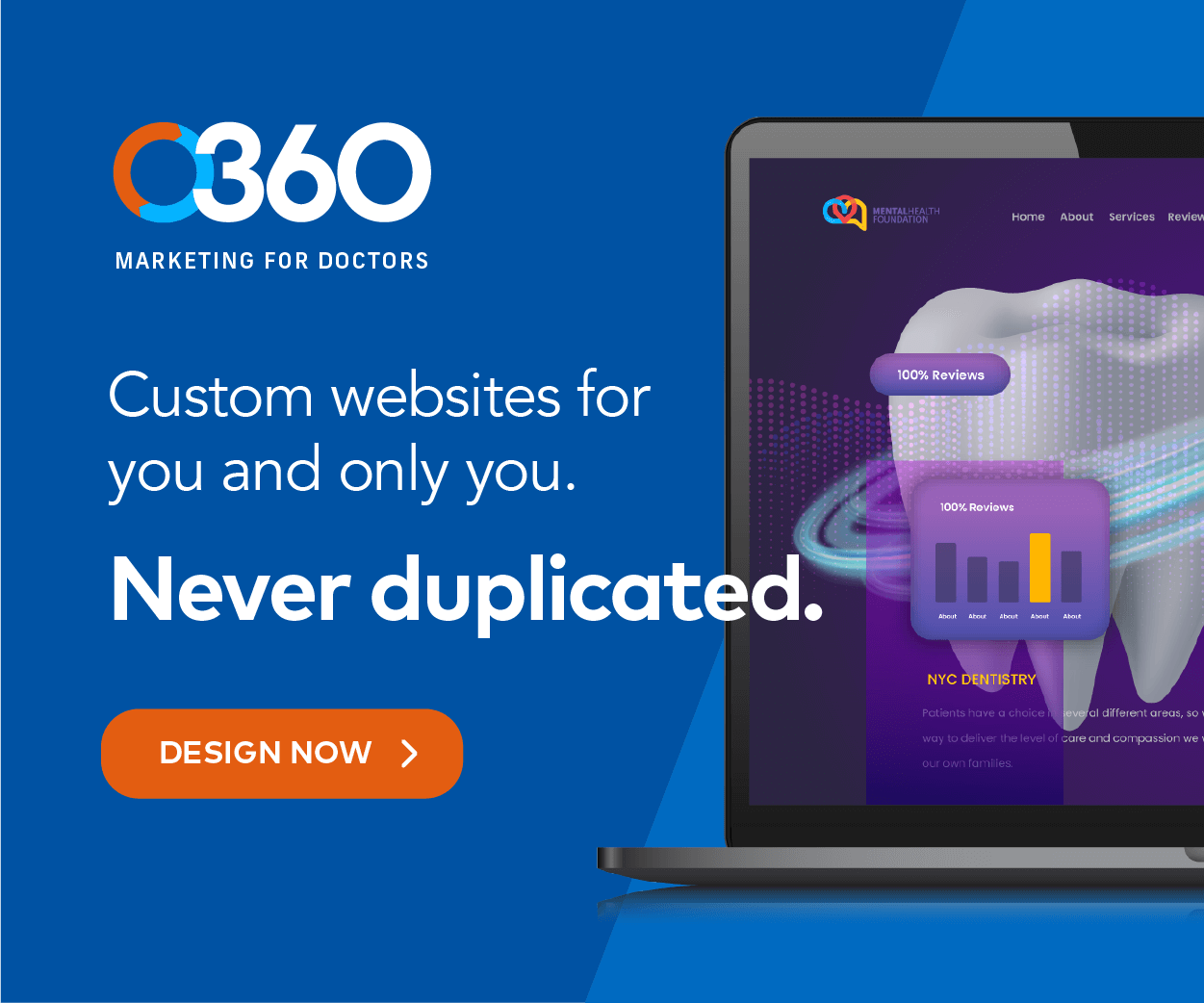You may be the best vet in the town, but how do you expect a potential client to know that? Yes, if they had met you or had a chance to see how skilled you are in dealing with animals, they would never go to another vet, but how can you convince them to give you that chance?
Like it or not, besides word-of-mouth and traditional marketing methods, the internet is the main way people find vets. Even when people have been encouraged to visit a specific vet by word-of-mouth, they most likely check that doctor’s website and online reviews before committing. Therefore one way or another, your website will play the most important role in promoting your practice. So, if you think your website is the equivalent of a digital Yellow Page, you are wrong and perhaps… dare I say… really old!
Creating your website
During the website development process, these are the topics that we need to decide about.
- Domain name
- Design type
- Technical aspects
- Maintenance and updates
- Promoting the website
- Who to hire
There are also some common mistakes we need to avoid, which we will discuss.

Domain Name
The first thing you need is a domain name. A good domain should follow these criteria:
- Be Relevant
- Keep it Short (under three words)
- Choose easy to remember
- Choose Easy to spell
- Avoid propositions
- Stay away from confusing similarities
- Avoid words with close versions.
- Use timeless words
- Stay with .com
- Don’t limit yourself geographically
- Don’t use a person’s name
- Do not use hyphens or other special characters
If you already have a domain that misses multiple items above, consider changing it.
Be Relevant
It may seem obvious, but it is so common for people to get cute and pick names that have nothing to do with the area they are practicing in. I have seen names that make you wonder about the thought process. Like
www.TheLastDinner.com
or
www.FreshAirLosAngeles.com
for a vet website!
I am sure at the time, it had a relationship or a clever reference to something pet related, but that is lost fast. Just keep it straight. If you have to explain the name, it is perhaps not the right one.
Reach out to O360 if you need a custom vet website designed for you.
Keep it short
Long names are hard to remember and hard to communicate. They also get mixed with variations of them. Try your best to use three words or fewer. Pick a name that is easy to say on the phone. For example, these are a few domain names that are just too long:
www.CaringVetofEastLosAngeles.com
www.EmergencyPetCareCenterAZ.com
www.EmillioEdwardChicagoVeterinarian.com
Easy to remember
There are two ways people find your website. The first is through a link. Memory won’t be a problem there. But, if you or someone who wants to send you a client verbally sharing your name, you really want a name that is easy to remember. It can be the difference between a good long-term paying client and another empty slot in your calendar.
Easy to spell
If you need to spell all three words in your domain, you have selected the wrong one. A difficult name is also more likely to be confused with a similar variation resulting in the loss of a client.
Avoid propositions
Try to avoid propositions like ‘the’ or ‘a as much as possible. People so easily get this wrong. So,
www.ChicagoCaringVet.com
Yes, but
www.TheChicagoCaringVet.com
No.
Unless you want to lose your client to the new practice down the street that happened to own the first version!
Avoid confusing similarities
Don’t use words that can be confused with others easily. For example, words that have the same sound but are spelled differently.
Use timeless words
It is tempting to use trendy words in your domain name. ToysRUs, for example, was a clever name that took off, and everyone came up with their version for their business category. But, today, names like BoatsRus or DogsRus mean ‘we are old.’
See the ultimate website development checklist.
Stay with .com
Unless you want to hand over your hard-to-earn client to your competitor, stay away from .net, .biz, or any other domain extensions besides .com.
Like it or not, you WILL lose clients if you pick these secondary options. The test is simple. If you need to use the sentence
“not .com it is .net”
You are picking the wrong name to explain your name to a client. This is especially more important today since there are a lot of new extensions that are really nice to the ear. For example, ‘caring.vet’ or ‘vet.chicago’, etc. But don’t fall for it. These new extensions may become more known in the future to the point that the extension becomes like an area code, but until that day, stay away from anything besides .com.
Don’t limit the name to small areas.
So many businesses regretted choosing a name based on their neighborhood when they later needed to move or expand. It may seem like a good marketing idea to make your domain name or business name relevant to your geographic location, but that is often a very short-term advantage, especially if you are successful. The bigger geographic area may be less risky. For example, ChicagoVet.com may be less risky than, let’s say, MainStVet.com, but even that can be an issue if you decide to expand to other cities in the future.
Don’t use your name
This one is tricky. A lot of people use their own name as their practice name. And it has a lot of advantages. But most short-lived. You will significantly reduce your practice’s long-term value if you use your own name as the practice name. So, if you want to sell your practice at some point, bring in partners, or even leave it for your children, you should consider using a different name than your name for your business, especially your domain name. You can always use your name alongside the business name, but always think 20 years down the line and see if your decision still sounds like a good one when your newly graduated daughter is not excited about using DrDavidMadosa.com as the name for her new vet practice.
Besides, many names are hard to spell or can get mixed up with spelling variations, especially if yours is one with unusual spelling.
Who should design your website?
I promise to break it down, but let me save you some time. Undoubtedly, your website should be developed by a professional web design company specializing in building custom websites for veterinarians. You may say I may be biased, so let’s review the top reasons:
Financial
One of the reasons vets may go with an individual they know, as opposed to a company, is to save money. It is true that, on average, the dollar amount you need to pay a company to design a custom website for you is higher than what you would pay an individual. But should you consider the dollar amount you pay alone or the true ROI of building a website?
Let’s use an example. Say your brother-in-law will charge you $1000 to design your new website. Let’s not worry about the monthly fees for now. At the same time, a professional web design company may charge $6,000 for developing the site. That may seem to be a saving of $5000. But what if the custom design can convert 2-3 more patients per month?
The average value of a new client to practice varies but can be put at $2000 conservatively per year. Now, three additional clients will bring in $6,000 for the first year. That will more than cover the difference. But wait, that was for one month only. In other words, the additional income of a professionally done website in one single month will cover the difference in the initial investment. From the second month forward, every additional client will bring in thousands more without spending a single dollar more!
Let’s say I am totally wrong, and there is no advantage to having a custom design versus one done by your brother-in-law. What is your loss in that scenario?
A one-time $5000?
Do you think it is worth saving $5,000 but losing the potential to make $100,000 additionally per year? Getting two extra monthly patients from the custom version adds up to $100k in repeated annual revenue. To me, it is crazy not to risk that one-time difference.
Trust
The second reason people go with someone they know is trust. “I know him/her,” they say. But let’s be real. You are not opening a bank account. What is it that you are risking that trust can address?
As long as you are dealing with a reputable company, in my opinion, the trust can go the other way around. You trust your friend, true, but have you ever had a falling out with a friend? How much can you trust the friend you chose to do your website after a big fight that happens between friends all the time?
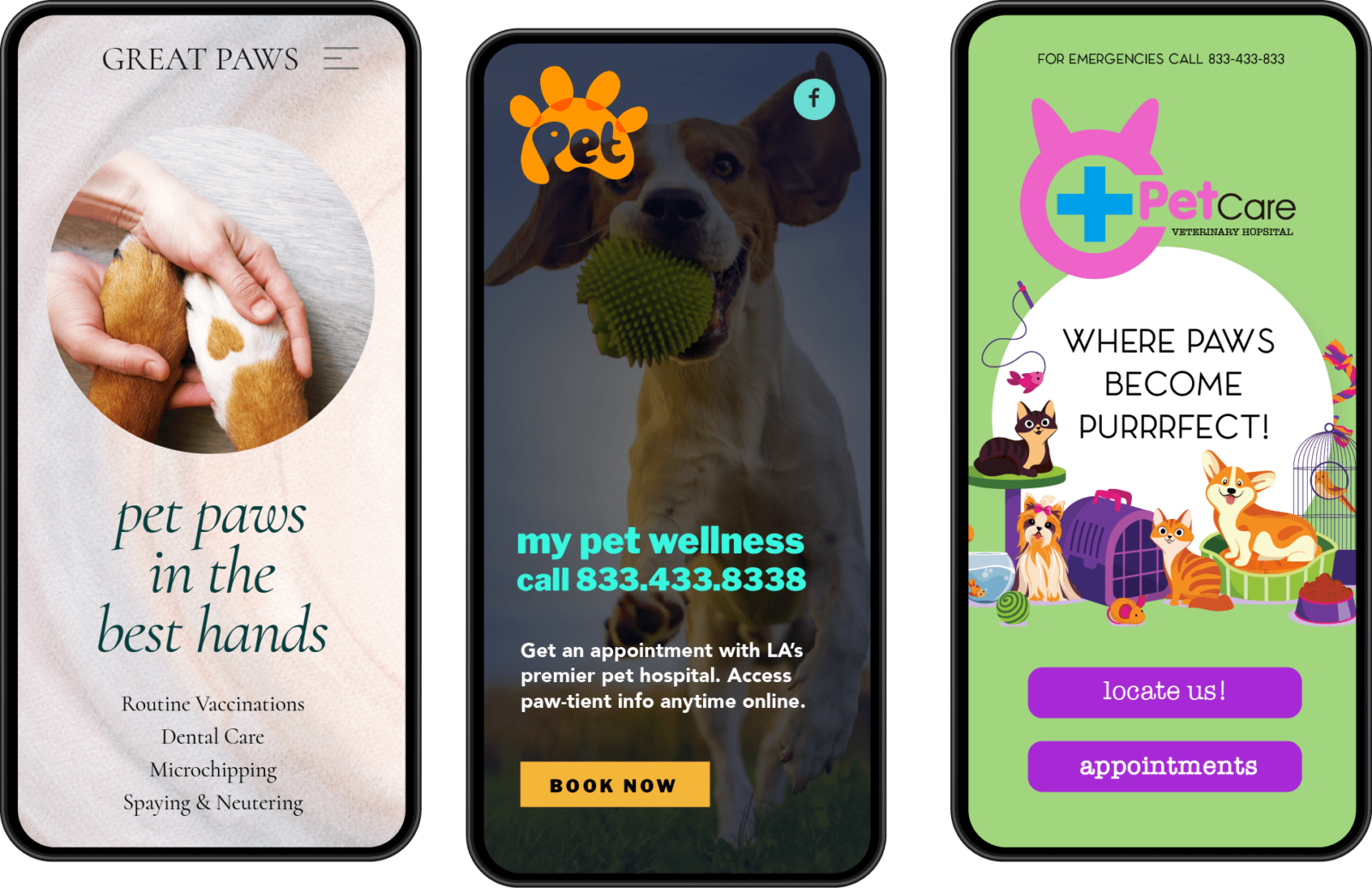
Access
Many argue that going with a friend or family member is advantageous because you can call that person anytime and ask them to help you with an update. What we miss here is that people move, get new jobs, marry, have kids, start a business, and…
There are tens of things that can happen that affect the availability of a person to help you with your website. On the other hand, if you deal with a reputable company with a US-based support team, I can promise you that they will be available in a timely, acceptable manner to take care of you. Besides, a company has access to programs and teams that automatically check the health and functionality of their websites around the clock. Something that most individual freelancers do not have.
Security
By giving control of your website to someone you know, you expose yourself to substantial security risks. For example, let’s say you design your website and buy a low-cost hosting solution from GoDaddy. Great. You have saved a lot at the start and pay much less every month compared to your friends who got duped by a company!
One day you wake up and see your website is sending people to an online pharmacy Viagra page. You panic and call GoDaddy to find out that you have no coverage for malicious attacks and are fully responsible for fixing this issue.
The amount of money and time it takes to fix something like this is so much that it is often better to redo the website from scratch. But the problem is that even if you redo the whole site, the nightmare is not over. When hackers find a way to access a website, just changing the password won’t do much as, most likely, they have found a vulgarity in the website’s structure or tools and plugins you have used, which will still be there even if you redo the whole site.

If you think that this won’t happen to you, think again. You are attacked by hackers hundreds of times a day, and on average, pretty much all websites, especially small business websites, are successfully attacked once every 3-4 years.
Technical
Another factor to consider is technical issues. These problems range from compatibility to compliance. Losing 3-4 clients a month because your website does not show correctly on an iPhone Max Pro can cost you tens of thousands of dollars annually in lost revenue.
Even if you had done everything perfectly when you initially designed your website, do you have the technical knowledge to keep everything up-to-date? Every time new requirements are added to websites, millions of independently developed websites lose everything since updating the site often requires redoing the whole thing with newer tools and on different platforms.
Monthly cost
Many practices hate the high monthly fees of professional web design firms. They argue:
“Why should I pay $100 monthly when I can get hosting from GoDaddy for $14?”
They often miss what is included in that $14 per month. Or rather, what is NOT included. The following is the list of services that a professional company usually includes in monthly services that a low-cost hosting account does not:
- Enough space for high-resolution images and videos
- Automatic uptime monitoring
- Anti-hacking software
- Anti-spam program to protect online form
- Managed backup
- Website restore
- Hack attack recovery
- Security software
- SSL certificates
- HIPAA compliance
- Accessibility
- Speed optimization
- Phone support
- Mobile compatibility
- Browser compatibility
- New screen size adaptation
- Software update
- Online editors
Many other items may be included depending on the hosting company and the professional firm. If individual features that professional firms cover are added as individual add-ons from a company like GoDaddy, it adds up to $200 to $300 per month on average.
Technical support
Many are unpleasantly surprised to learn how little wholesale hosting companies like GoDaddy cover in terms of support under their monthly fee. Pretty much you are on your own with everything that may go wrong. In most situations, they won’t even look at the problem to tell you how much it costs to fix it. Most hosting companies only cover issues that may happen at the server level and not the website level. With regular hosting fees, you are basically renting space on a computer, not a web hosting service.

Getting locked out
One of the most painful things to watch is when a practice has lost access to a website or domain name controlled by a client, family member, or friend that is no longer available.
Sometimes people or individuals move, and since the relationship has been on-demand, you have not been in contact for a couple of years and now deal with a disconnected phone and a non-responsive email.
Another complication happens when dealing with someone you are no longer on good terms with. I have seen this happen with doctors who have had their patients do their website (the worst decision ever). Obviously, when this arrangement started, everything was great. Still, things change, and if the relationship turns sour, you may end up in a situation where your website or the domain is held hostage by an angry client who may have very unreasonable demands!
Remember, people move, relationships end, friendships change, and you may lose access to your site. No matter what, a company has a process of retrieving access as long as it is reputable. By the way, I don’t consider a freelancer with 50 clients a company.
Custom website versus template website

A template-based website’s only advantage over a custom website is a lower initial fee. The question then is:
“Are disadvantageous of a template-based website worth the ‘saving’?”
Let’s review these cons:
Low conversion
This one disadvantage is reason enough not to go with a template website and stop reading the rest of the points. A lower-quality website has a lower conversion rate. That is not my opinion. That is a fact that you most likely believe as well. A template site has a lower conversion for many reasons, including:
Low visual appeal
A website’s structure must be simple for a template system to be possible. That alone limits the amount of creativity that can be used in designing the website, holding the design quality at a more basic level.
Lack of unique features

It’s nearly impossible to stand out with a template site when the same design and identity are used by hundreds of other practices of different specialties in the same area, depending on the size of that company.
Low customization capability
Due to the limitations inherent in a template system, adding expected modern features to these sites is hard, if not impossible. Many of these sites can’t host tools like online scheduling or interactive tools.
No protection for your brand
You can spend thousands of dollars and years building a brand based on the look of your website. In literally minutes, a new practice can come to the area, buy a website from the same company, clone your design with all its branding, and start promoting the site, confusing those who have learned to know you with those specific visual cues.
Limited future compatibilities
During the last decade, on multiple occasions, large template companies have failed to maintain their website and future-proof it to adapt to new changes. Because all the websites on a system have to follow an identical structure, when a new requirement is added, it is often not practical for the company to update thousands of websites simultaneously. At the same time, a template system is required.
For example, when Flash animation was phased out, one of the largest healthcare template systems’ home pages was broken for over three months. Another problem arose when new mobile devices came to market, and those template systems could not adapt to different screen sizes.
Reasons template website may not be the best choice.
The look and feel of the design
Now that we have discussed who should design your website and how to select a domain, let’s discuss important principles that should be considered and followed during the development process itself.

It may seem unnecessary to emphasize the importance of design quality, yet you see it ignored so often. So before spending time on how good quality is achieved, let’s discuss why it’s needed.
You may not care about the appearance of things as long as they function OK. You may consider it a wasteful luxury. But remember, your website is not built for your clients. If they don’t care about appearance like you, fine, nothing is lost. But, if they do, you are losing a big portion of your potential clients by ignoring them.
Even if one does not care about luxury or details of layout, no one will mind it. So, it is common sense to ask for a visually appealing and modern design with great attention to detail. You will be judged based on these details, especially by visitors that don’t know you and have not been to your practice.
User experience and design interface
While the website’s appearance is important to most, the user experience is important to all. The frustration of a slow-loading website, or one with broken links and confusing navigation, translates directly to frustration about the practice. The functionality of your website speaks a lot about you and how well you run your practice. Make sure your website user experience is flawless. Also, ensure there is a practical way for your visitors to share feedback about the site and their experience. Proactively ask your clients if they have been to your website and how they feel about it.
The Website Content
Google ranks websites based on their usefulness. That is why having good quality, helpful content on your website is essential. Your content should answer the most frequently asked questions by clients who bring their pets to you. Also, provide disease prevention and pet health topics on your website. Your content should be nicely organized and accompanied by helpful visual aids like images, charts, and ideally videos.
The practice-related content, like information about you and the team and information about your services, technology offered, and office, should be easily accessible. Don’t forget contact info on every page.
Important pages
Here is the list of the pages to consider
- Home (a summary of the practice)
- About us (doctors, staff, office, technology, insurance, and financial info)
- Contact us (phone, email, address, map, and online contact form plus optional social handles)
- Services (highlight the main ones and link to details about all)
- Health education (Articles and videos to cover preventive care)
- New patients/clients resources (info on appointments, forms, instructions…)
Landing page sections
Most home pages should include the following sections. They are not all required, but these days, people often use their phones to browse websites and prefer to scroll down to all the information they need instead of jumping between pages.
- Header
- Navigation
- Logo
- Phone
- Call to Action
- Contact info
- Hero
- Main image/video
- Message
- Supporting paragraph
- Bullet points
- Services
- Highlight 3-5
- Link to more
- About us
- Doctor
- Team
- Promotions
- Testimonials
- Contact form
- Footer
- Social icons
- Navigation
- Legal notices
Extra features
These additional features can be both helpful to clients and also present a positive image of your practice.
- Online scheduler
- Patient registration forms
- Patient Portal
- Tools for self-diagnosis
Optimizing your website
SEO or optimization for search needs to be done in two phases. One is during the building of the website, and the second is as an ongoing campaign that is mostly based on content creation. We will discuss Search Engine Optimization in a different article in detail.
You can see the online marketing product offered by O360 here.

Hosting and maintenance
After your beautiful new website is completed, it should be placed on a high-quality cloud-based server and maintained by a reputable company. Here are the characteristics of a good hosting company.
- Fast server
- Cloud-Based
- Redundancy
- Load balancing
- Cacheing capability
- CDN offering
- Bandwidth auto expansion
- Anti-hacking
- Spam blocking
- Managed backup
- Dedicated WordPress
- No Email Hosting
- Uptime monitoring
- No network downtime
- Enterprise level chips
Promoting your website
After completing your website, it is time to promote it online and offline. Read our comprehensive Online Marketing article to review all the important ways vets use to promote their websites.
The top categories include:
Tracking performance
Without data, optimization is not very successful. The best tool available today is Google Analytics.
How to find a good design company
Here are the top questions to ask:
- See portfolio
- Talk to clients
- Talk to designer
- Ask about their backend
- Compare stats


